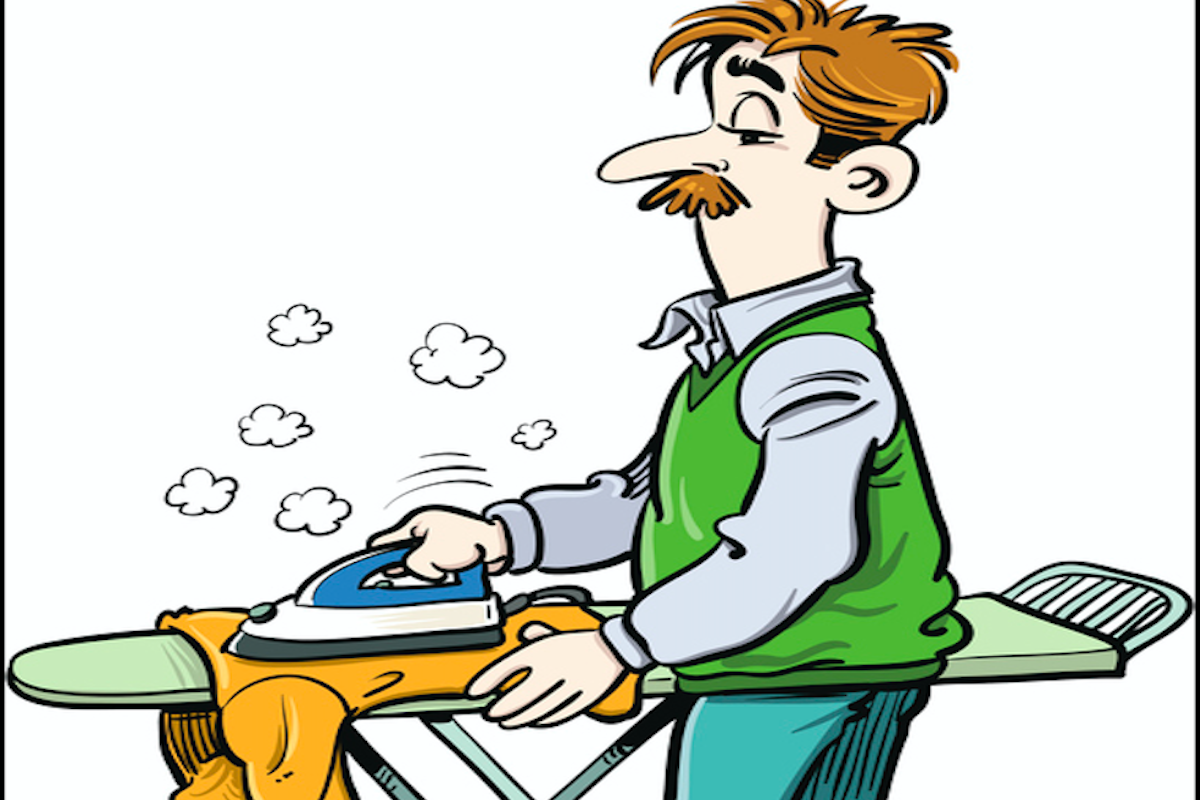With the lifting of the Covid protocols and resumption of normal activities, Ram Sevak, the local ‘istriwala’ is a happy man. Ironing clothes in one of the back lanes of C R Park for the last 25 years, he had experienced inordinate hardship during the Covid-induced shutdown.
Plummeting incomes, falling patronage, and the heightened germo phobia had literally heralded the death knell for his hereditary trade. Timely dole-outs from some good samaritans and generous offerings of rations by philanthropic organisations helped him in surmounting the challenges posed by the pandemic.
Advertisement
As a strapping youngster, he had mastered the basics of ironing from his father at a roadside outlet on Hailey Lane. ‘Observe, learn and practice’ were the guiding mantras in his internship.
Starting off as a delivery boy, he soon acquired the skills of the trade under the watchful eyes of his father. The need for bestowing meticulous attention to minute details, to complete the assigned tasks without any undue haste, and above all, to treat every cloth by its texture and quality was deeply ingrained in him at a very early age.
In their fiercely competitive world (Ram has to contend with 90 other practitioners of this trade in the colony alone), averting the risks of ironing are of paramount importance. Any instance of damage/singeing/loss of clothes invites threats of forced eviction, sharp rebukes, demand for appropriate compensation, and above all, an irreparable dent in reputation, etc.
For these self-employed professionals, the daily rigour of working on the heavy iron box for 10-11 hours at a stretch, constant lifting of the iron, and swinging it back and forth, that too in a standing position is fraught with numerous health hazards viz. wrist immobility, spondylitis, skin problems, swelling in the nerves of hands and joints, etc.
The use of glowing charcoal splinters and the attendant heat, soot & grime being continuously emitted have a deleterious impact on the respiratory system and vision as well. Virtually working in the open with an awning for their tables/pushcarts, ironing boards, the pail of water & clothes’ bundles, and being continuously exposed to the elements is a daunting challenge in itself for these practitioners of a largely hereditary trade with low earnings.
With ‘work from home’ gradually yielding place to ‘return to work place’, there is renewed hope for an uptick in daily earnings of these pressers.
However, the change in sartorial trends in the last decade might usher in an ‘ironing-free future’ in the coming years. The invention of the robotic ironing machine, wrinkle-releasing sprays, the rise of athleisure, trendy wrinkle-resistant clothing, the growing trend towards casualisation of clothing in the workplace, and the millennials’ disdain for ironing and preference for tracksuits, sweatsuits, and T-shirts might herald the doomsday for Ram and his ilk in the foreseeable future. With the advent of fashion-enabled laziness, ironing may soon be ‘a thing of the past’.










